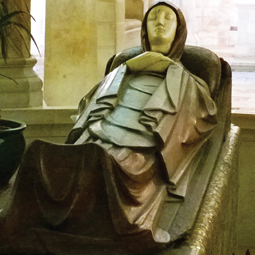For days already, the news feeds have been filled with features about the revelry and, in some cases, stupidity of folks gearing up to celebrate “St. Paddy’s Day.” For many, it’s the night to carouse and find a pub that sells green beer (not hard to do) so that they can drink to… what?
What are we really celebrating today?
St. Patrick’s Day has been observed since March 17, 461 A.D. – the day Maewyn Succat died.
Who?
Maewyn Succat, the British (some say Scottish) son of an army officer who became the bishop and patron saint of Ireland. We know him as St. Patrick.
As a boy, St. Patrick was captured by pirates, carted off to Ireland, and became a slave. It was during his imprisonment that he experienced God in a dream and was converted. After six years, he escaped first to Britain and then to France where he joined a monastery of St. Germain. He spent 12 years in training, and then had another dream (inspired by God, not green beer, mind you) that the Irish were calling him back to Ireland in order to teach them about the Faith.
With the Pope’s blessing, he traveled to Ireland in order to convert the pagans there. However, he was not welcomed by the locals, and suffered great persecution, including several arrests (all of which he managed to escape) and a number of death threats from area chieftains. In spite of the dangers, he continued to travel widely throughout Ireland, converting and administering the sacraments. Eventually, he did win their hearts for God. During his twenty-year expansive journey, he built monasteries, schools, and churches. He left behind volumes of his writings of courage, strength, and untiring devotion to God and to his mission to evangelize Ireland.
Upon his death, March 17 was commemorated as St. Patrick’s Day, becoming a holy day for the Catholic Church.
I delved into some of his writing this morning, and found myself stopped in my tracks. St. Patrick was writing about fifth century Ireland, but he might as well have been writing about twenty-first century Iraq, Syria, or Nigeria. This is from his Letter to the Soldiers of Coroticus, dated approximately 450 A.D.:
I am not addressing my own people, nor my fellow citizens of the holy Romans, but those who are now become citizens of demons by reason of their evil works. They have chosen, by their hostile deeds, to live in death; comrades of the Scotti and Picts and of all who behave like apostates, bloody men who have steeped themselves in the blood of innocent Christians. The very same people I have begotten for God; their number beyond count, I myself confirmed them in Christ.
Because of all this, I am at a loss to know whether to weep more for those they killed or those that are captured: or indeed for these men themselves whom the devil has taken fast for his slaves. In truth, they will bind themselves alongside him in the pains of the everlasting pit: for “he who sins is a slave already” and is to be called “son of the devil.”
Again and again, I hear folks say, “Everybody’s Irish on St. Patrick’s Day!” I daresay that’s true in a very different way today – at least for me.
It’s great to celebrate the culture and heritage of the Irish people (that includes me – for real – I have Irish blood). I want to do that, also. I’ll even have corned beef and beer later today in honor of this amazing saint, But, I think on this St. Patrick’s Day, everybody should be Irish for a different reason.
Just as during St. Patrick’s time in Ireland, there are “bloody men who have steeped themselves in the blood of innocent Christians.” St. Patrick prayed for, suffered for, and grieved for, the Christians killed by those who are to be called “sons of the devil.” I do want to rejoice in this holy day of St. Patrick, but I also want to offer my day, my suffering, my prayers, for the persecuted Christians throughout the world who have, or are about to shed their blood for Christ. And, if I could be so bold as to predict such a thing, I would say that St. Patrick is doing that today as well.
Today, I stand in solidarity with St. Patrick.
Image: Andreas F. Borchert, CC













